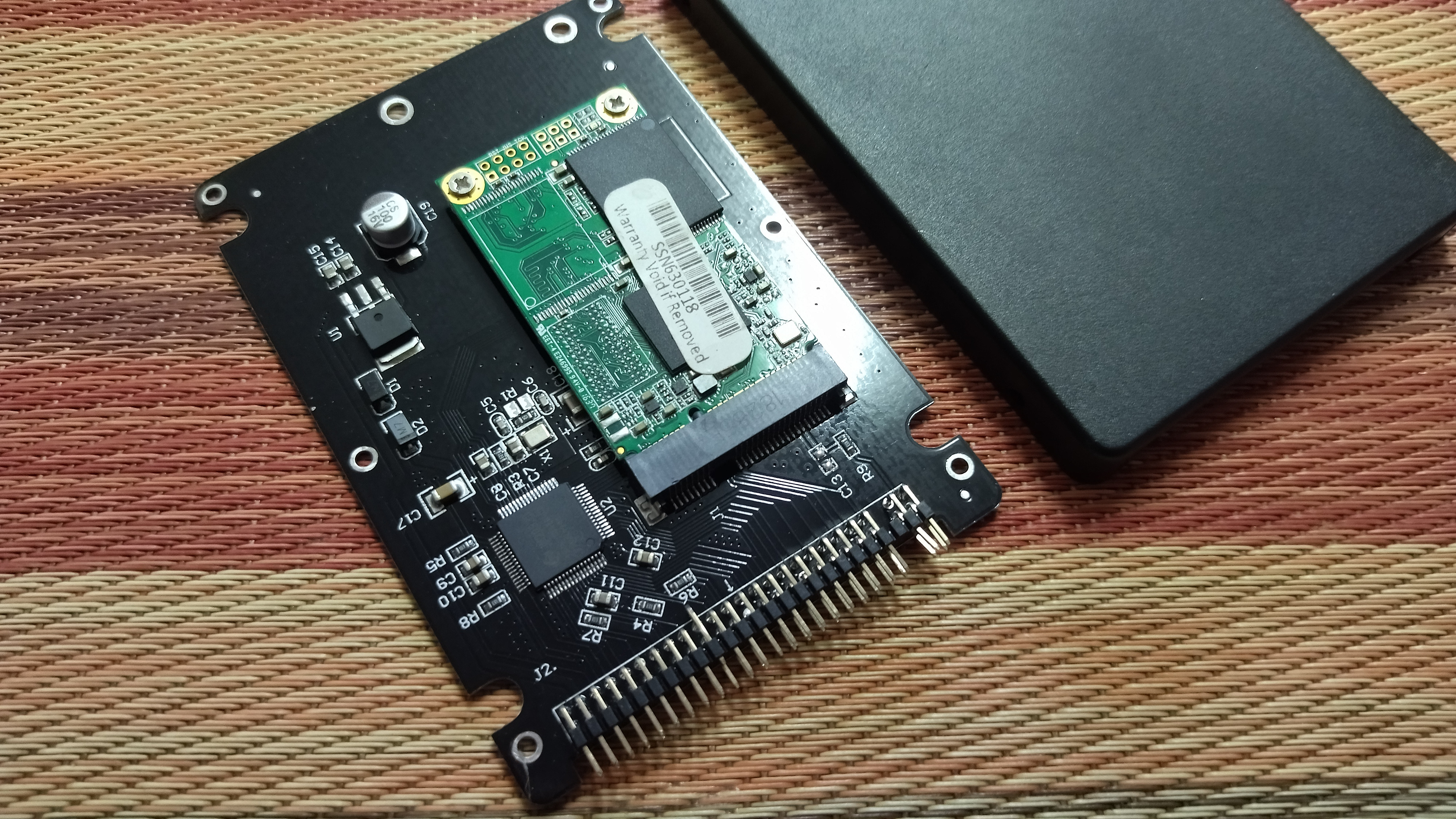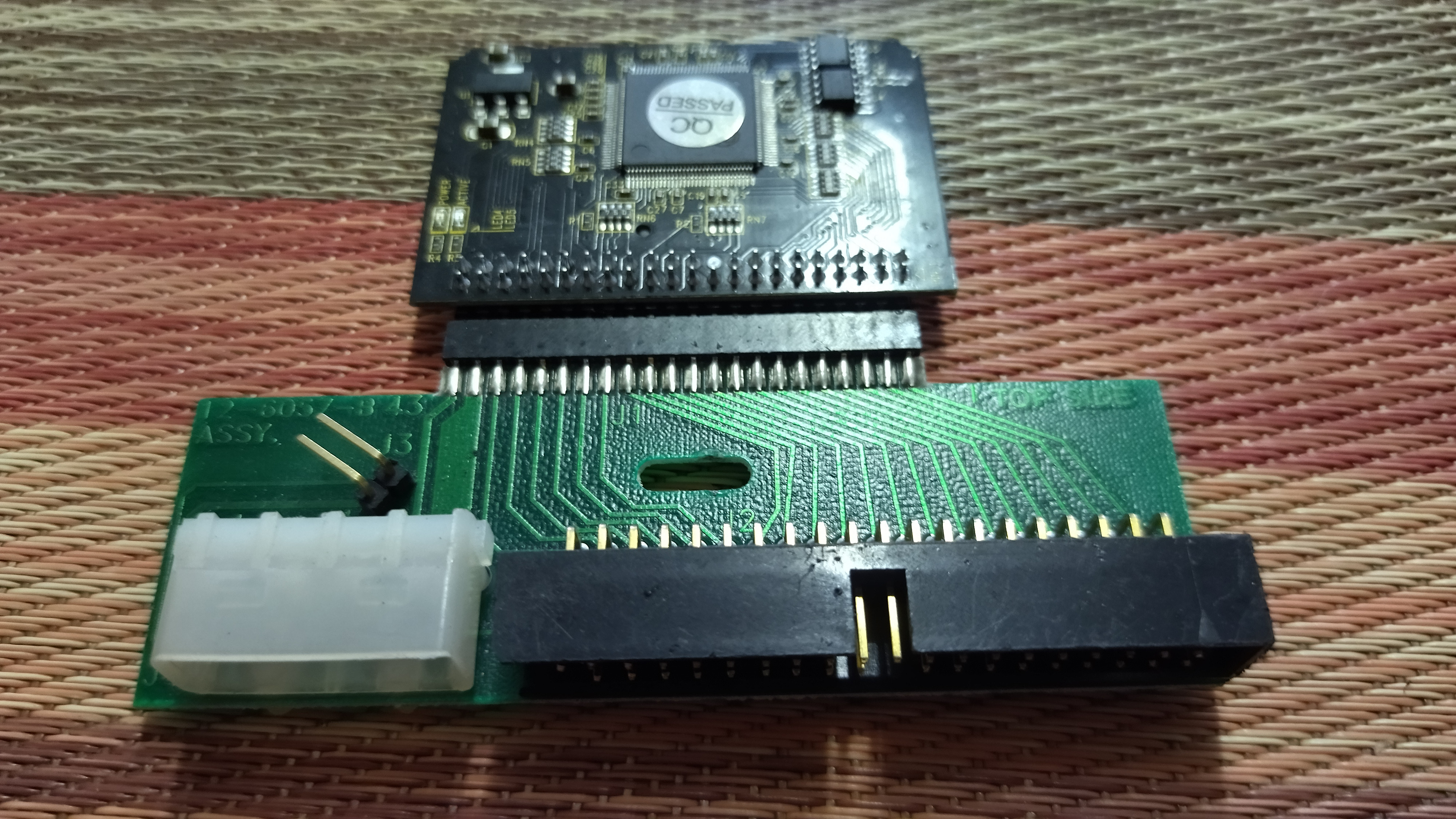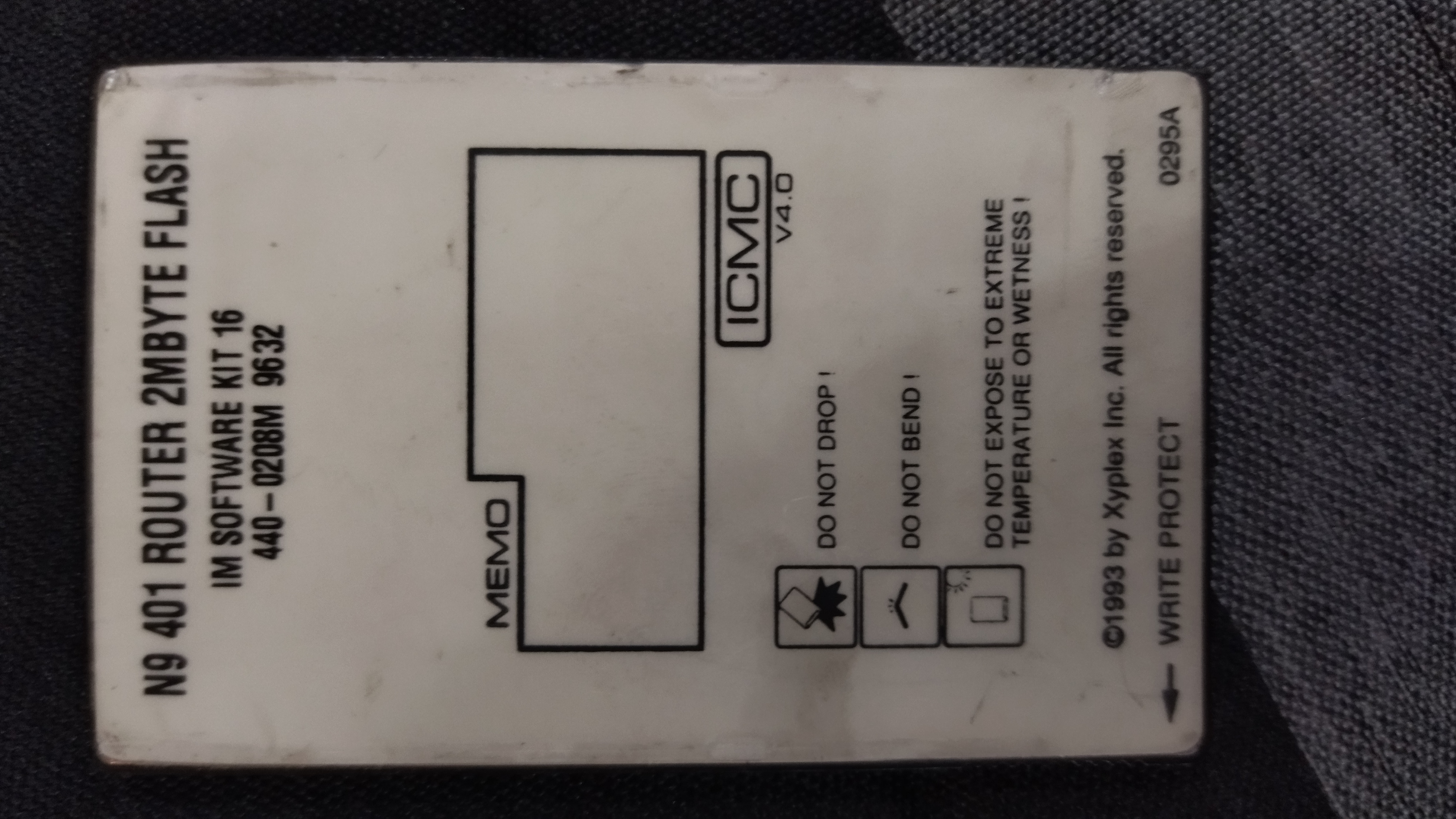Allow me to introduce my small (but growing) collection of solid state disk solutions for my vintage machines. Here we have an 8MB SSD that you can add to a motherboard ROM slot (or to an ISA/PCI card with a large enough slot). Big enough for a DOS system and some network drivers
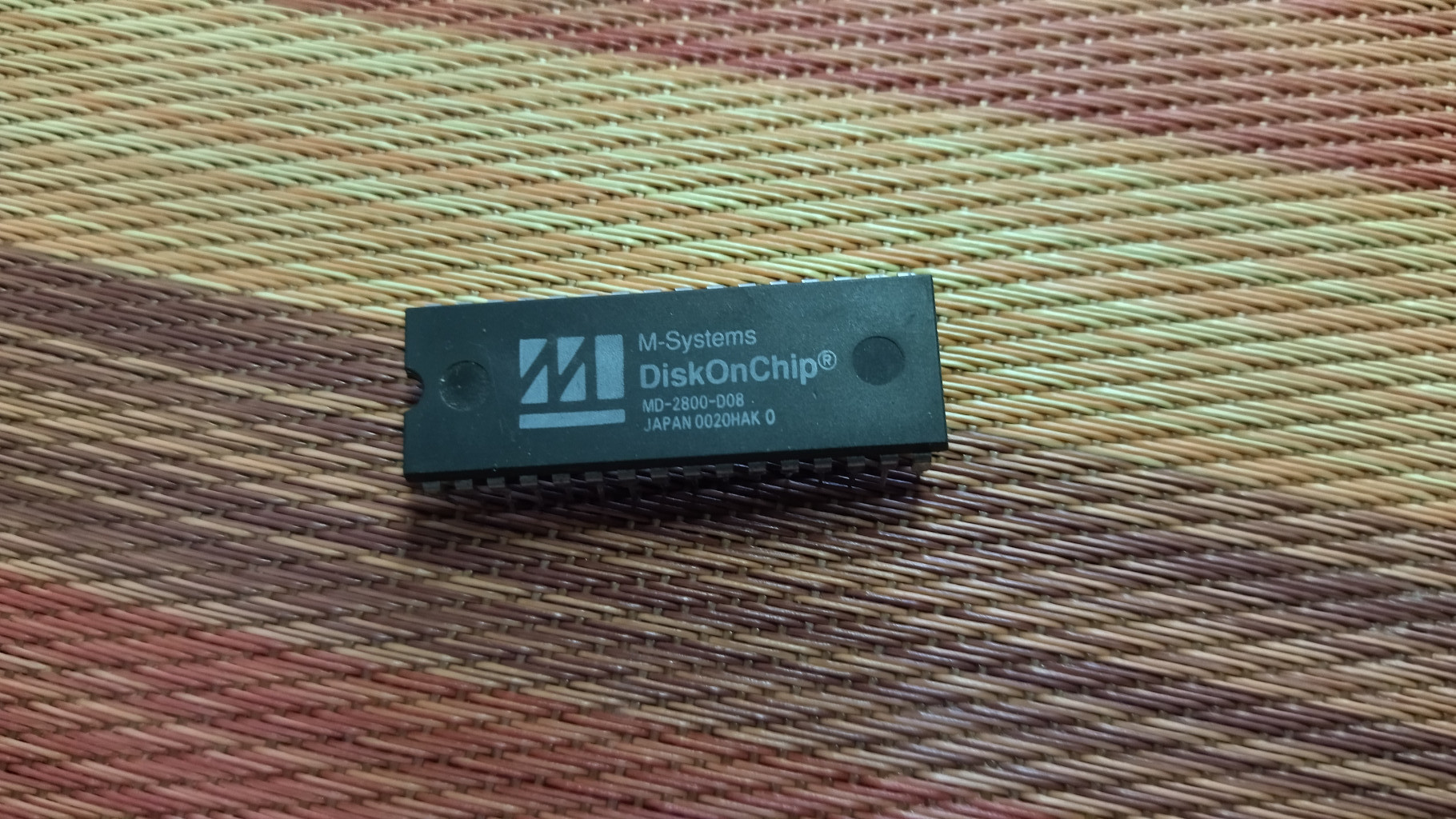
The makers of that 8MB chip (M-Systems) were one of the pioneers of flash based storage solutions. Later on they made this baby, a 256MB SSD that you could plug directly into a PATA IDE slot. M-Systems were later acquired by SanDisk.
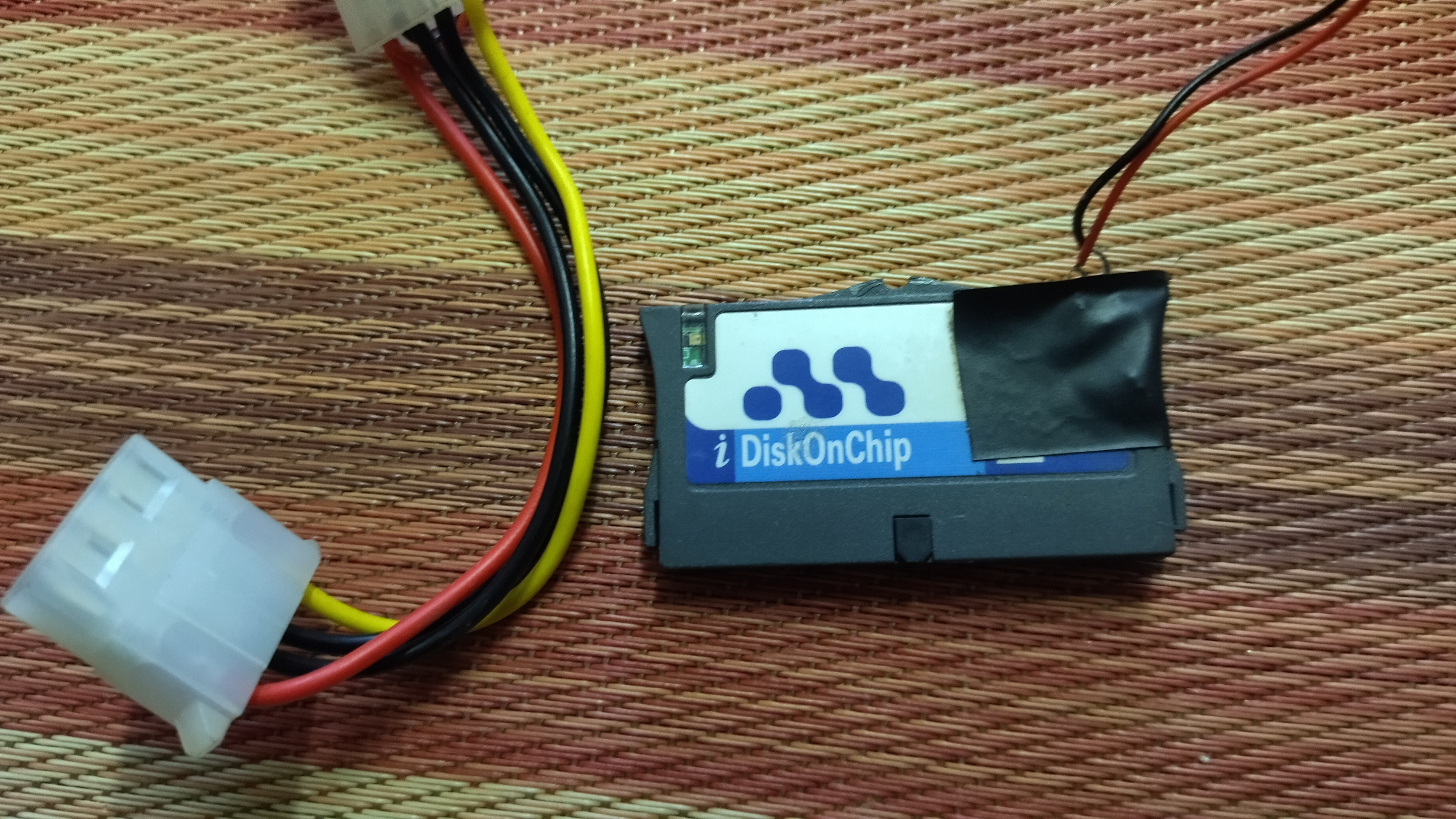
Moving into somewhat more conventional territory, here's a 512MB SD card on an IDE adapter, and then a conversion board from laptop 44 pin to desktop 40 pin + power. I use the 512MB card because that's the maximum my 386 can address without additional extensions.
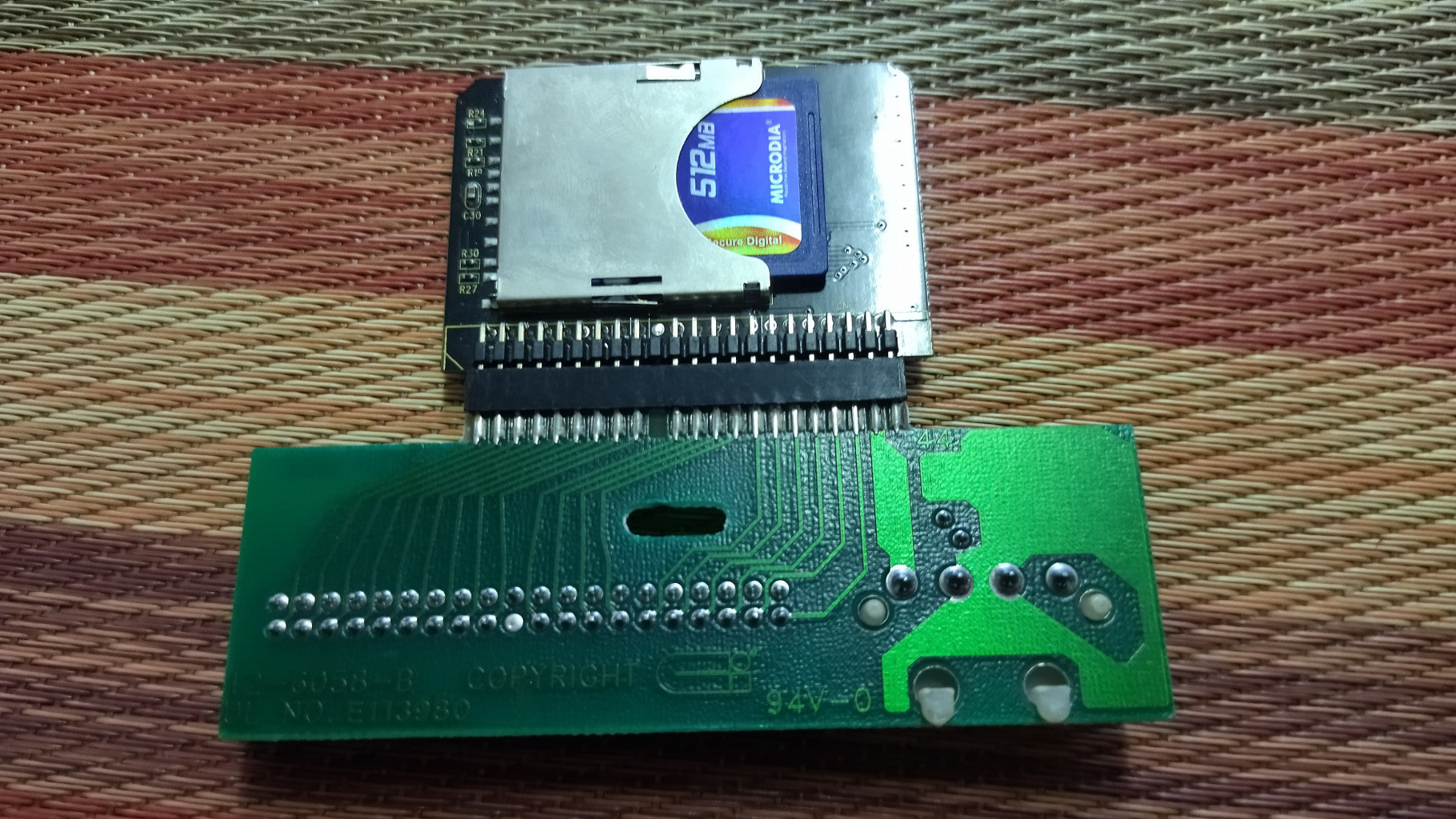
And this is a CF card to IDE converter. It seems that CF cards are basically just IDE anyway since the card doesn't have any meaningful electronics on it like the SD -> IDE converter. These were quite popular in the early 2000s when people wanted to build a quiet machine.
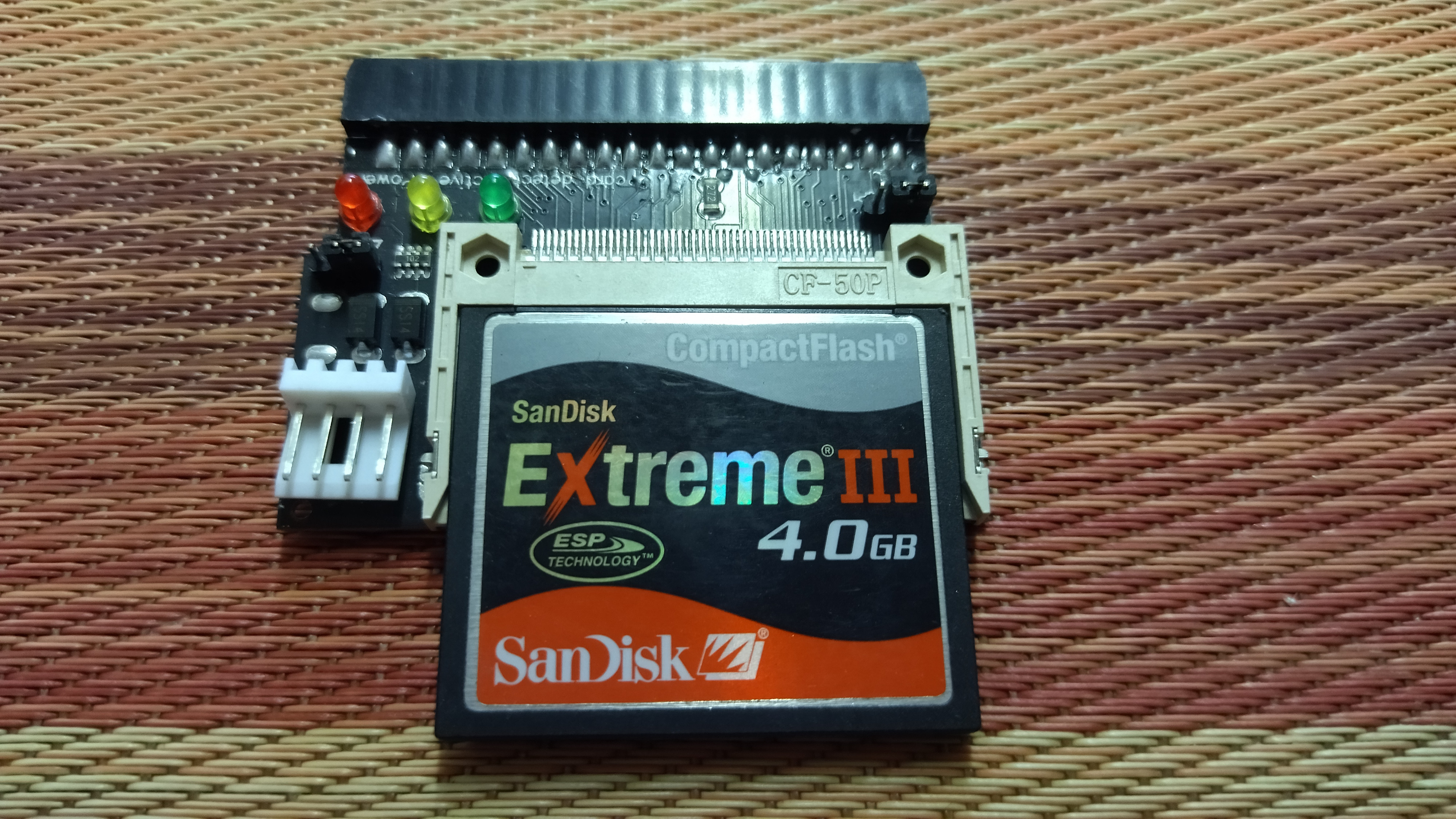
- replies
- 1
- announces
- 0
- likes
- 1
And for transferring stuff to old laptops (that doesn't have USB/ethernet and hard to remove hard disks), this comes in quite handy, a CF card to PC Card adapter.
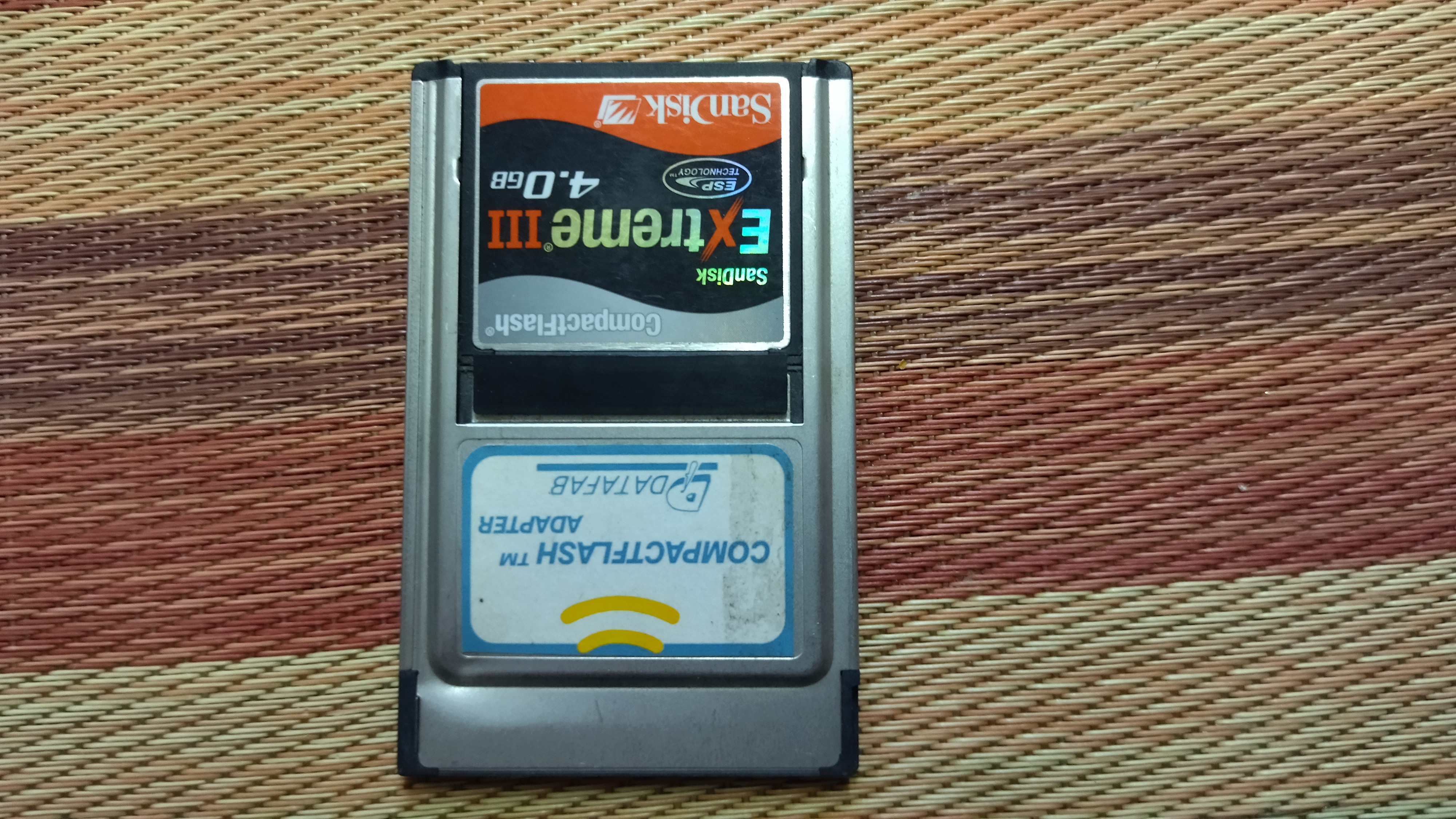
This is an M.2 to 44 pin IDE converter. It relies on the last generation UDMA chipsets that existed so I think it basically just works on P4 machines and machines from that era. This M.2 chip is 256GB which is plenty for an old machine that still takes IDE disks.
